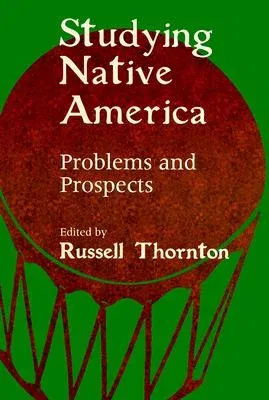"The White Man does not understand the Indian for the reason that he
does not understand America. He is too far removed from its formative
process. The roots of the tree of his life have not yet grasped rock and
soil." The words of Lakota writer Luther Standing Bear foretold the
current debate on the value of Native American studies in higher
education. Studying Native America addresses for the first time in a
comprehensive way the place of this critical discipline in the
university curriculum. Leading scholars in anthropology, demography,
English and literature, history, law, social work, linguistics, public
health, psychology, and sociology have come together to explore what
Native American studies has been, what it is, and what it may be in the
future.
The book's thirteen contributors and editor Russell Thornton, stress the
frequent incompatibility of traditional academic teaching methods with
the social and cultural concerns that gave rise to the field of Native
American studies. Beginning with the intellectual and institutional
history of Native American studies, the book examines its literature,
language, historical narratives, and anthropology. The volume discusses
the effects on Native American studies of law and constitutionalism;
cosmology, epistemology, and religion; identity; demography; colonialism
and post-colonialism; science and technology; and repatriation of human
remains and cultural objects.
Contributors to Studying Native America include Raymond J. DeMallie,
Bonnie Duran, Eduardo Duran, Raymond D. Fogelson, Clara Sue Kidwell,
Kerwin Lee Klein, Melissa L. Meyer, John H. Moore, Peter Nabokov,
Katheryn Shanley, C. Matthew Snipp, Rennard Strickland, Russell
Thornton, J. Randolph Valentine, Robert Allen Warrior, Richard White,
and Maria Yellowhorse-Braveheart. The book is sponsored in part by the
Social Science Research Council.

